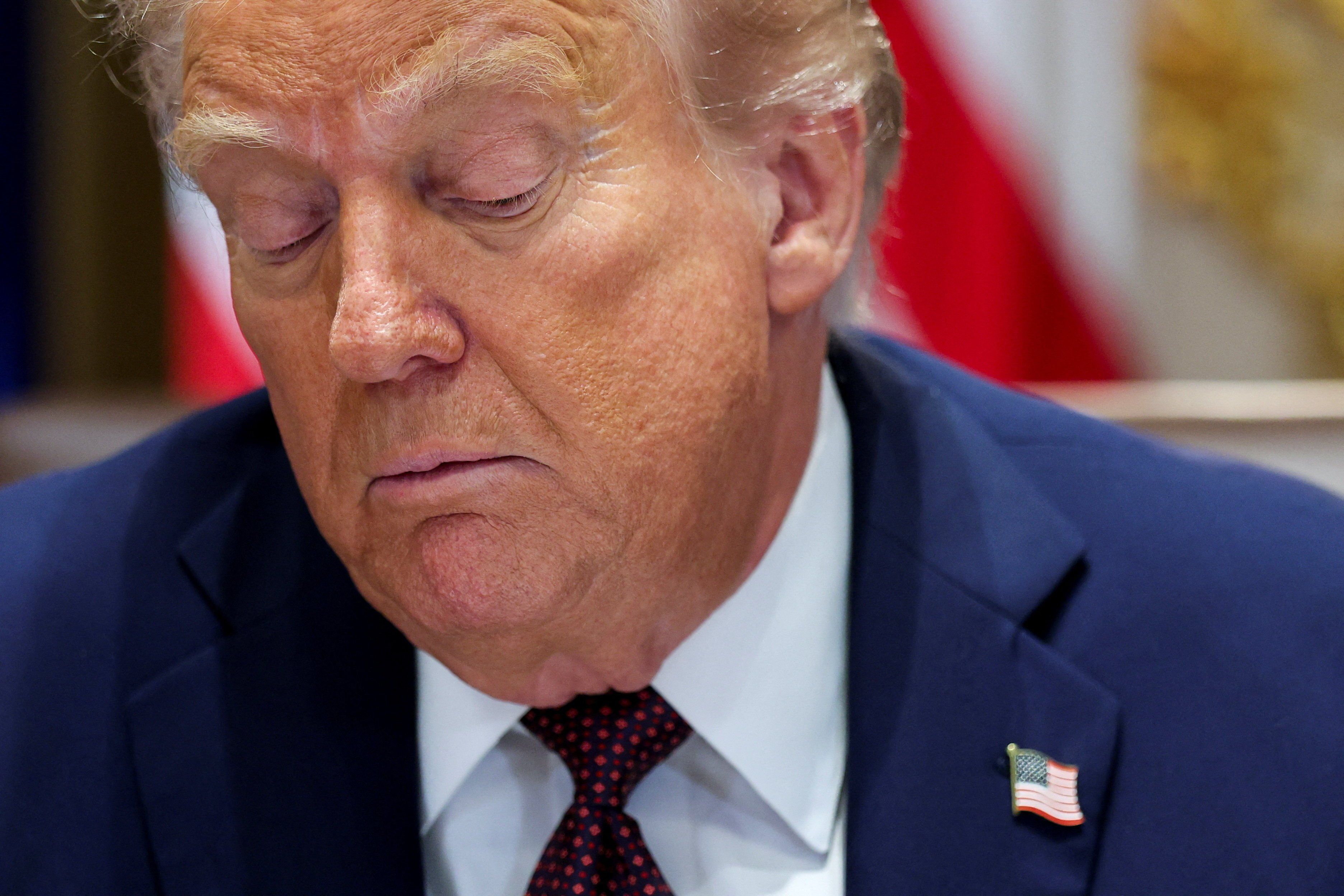The one thing Trump can’t take is a joke, especially one at his expense.
Yesterday — one day after ABC pulled Jimmy Kimmel’s show off the air “indefinitely,” after pressure from the chairman of Trump’s Federal Communications Commission — Trump said federal regulators should revoke broadcast licenses over late-night hosts who speak negatively about him.
“They’re giving me all this bad press, and they’re getting a license,” Trump told reporters aboard Air Force One. “I would think maybe their license should be taken away.”
It was bad enough in the early 1950s when the U.S. government criminalized certain speech during Joe McCarthy’s communist witch hunts. Those witch hunts were directed at alleged members of the Communist Party who supposedly posed a threat to America (although the vast majority of them were loyal Americans).
Late-night comedians pose no conceivable threat to America. They make people laugh.
But they do pose a potential threat to Trump.
CBS’s cancellation of Stephen Colbert’s Late Show was announced just days after Colbert slammed CBS’s parent company, Paramount, for giving Trump $16 million to settle Trump’s defamation suit — which Colbert called a "big, fat bribe” to get the FCC to allow Paramount to merge with and be acquired by Skydance Media.
Colbert was correct, of course.
Trump’s response to Colbert’s cancellation? “I absolutely love that Colbert' got fired. His talent was even less than his ratings. I hear Jimmy Kimmel is next.”
Kimmel was next, and it’s probably not coincidental that ABC has also been a target of Trump’s defamation ire, finally settling with him for the same amount, $16 million.
Trump’s response to Jimmy Kimmel’s cancellation this week? "Great news for America.” Trump then added, “[t]hat leaves Jimmy [Fallon] and Seth [Meyers], two total losers, on Fake News NBC. Their ratings are also horrible. Do it NBC."
What does Trump have against late-night comedians?
For as long as anyone can remember, they’ve been a source of jokes about those in power. In the wake of Kimmel’s firing, David Letterman, the longtime late-night host, said he’d routinely beat up on president after president over the years, and “not once were we squeezed by anyone from any governmental agency. Everyone sort of understood [it was] in the name of humor.”
But Trump hates to be the object of humor. Some deep part of his reptilian brain understands that humor can be a more powerful antidote to tyranny than any other form of criticism.
Laughter doesn’t just entertain, it subverts. Humor undermines tyrannical power that relies on projecting an image of inevitability and invincibility, by making a tyrant appear weak and vulnerable. Check one against Trump.
Laughter also undermines fear, which is used by tyrants to maintain control. When the public laughs at a leader, his oppressive control weakens. Check two against Trump.
Finally, humor can remind people they’re not alone. When a joke is widely shared, it reveals that opposition is widespread, which can encourage and validate resistance. Check three against Trump.
At some level, Trump understands this.
It’s also true that Trump’s fragile ego can’t stand to be ridiculed.
Anyone who watched the 2011 White House Correspondents' Dinner got a glimpse of how much Trump hates being mocked. President Obama and Seth Meyers spent nearly five minutes roasting Trump over his promotion of the "birther" conspiracy theory. The audience roared. But Trump appeared to seethe. Some of his biographers have speculated that this event was a key factor in his decision to run for president in 2016.
Finally, Trump seems constitutionally unable to recognize humor.
Unlike John F. Kennedy, whose wit encouraged us to laugh with him, or Ronald Reagan, whose funny asides endeared him to many who disagreed with his politics, Trump is humorless.
He doesn’t laugh. He rarely smiles. He occasionally tells a humorous story at the expense of someone or some group he dislikes but he is incapable of self-deprecating humor.
We don’t laugh with Trump. We only laugh at him.
In 2018, during his speech at the United Nations, his claim that “in less than two years, my administration has accomplished more than almost any administration in the history of our country” drew loud guffaws from world leaders. (Taken aback, Trump responded, “Didn’t expect that reaction, but that’s okay.”)
For all these reasons, Trump’s war on late-night comedians may be his undoing.
It’s one thing to declare war on crime or undocumented workers or even liberals. But everyone loves to laugh.
As Letterman said, “the institution of the President of the United States ought to be bigger than a guy doing a talk show, you know You can’t go around firing somebody because you’re fearful [that they’ll get a laugh]. That’s just not how this works.”
- Robert Reich is an emeritus professor of public policy at Berkeley and former secretary of labor. His writings can be found at https://robertreich.substack.com/
- Robert Reich's new memoir,Coming Up Short, can be found wherever you buy books. You can also support local bookstores nationally by ordering the book at bookshop.org.
Leave a Comment
Related Post
